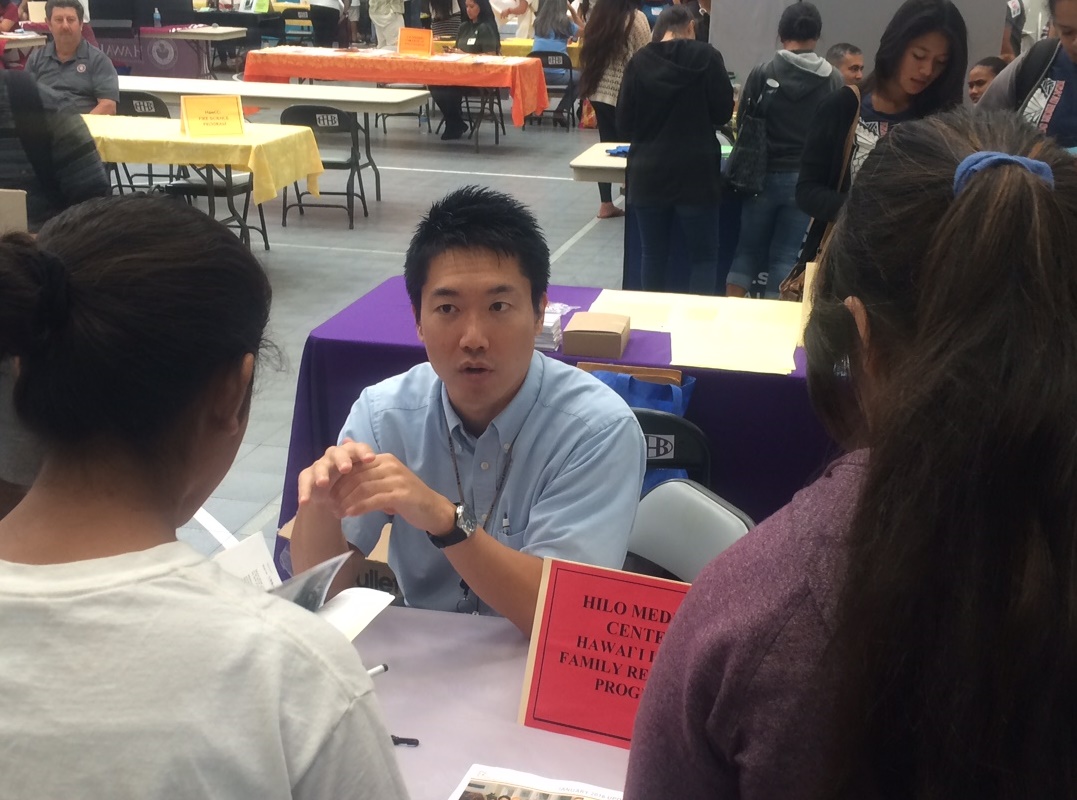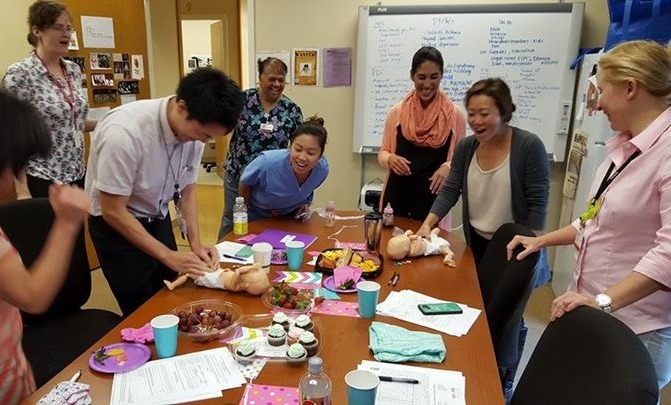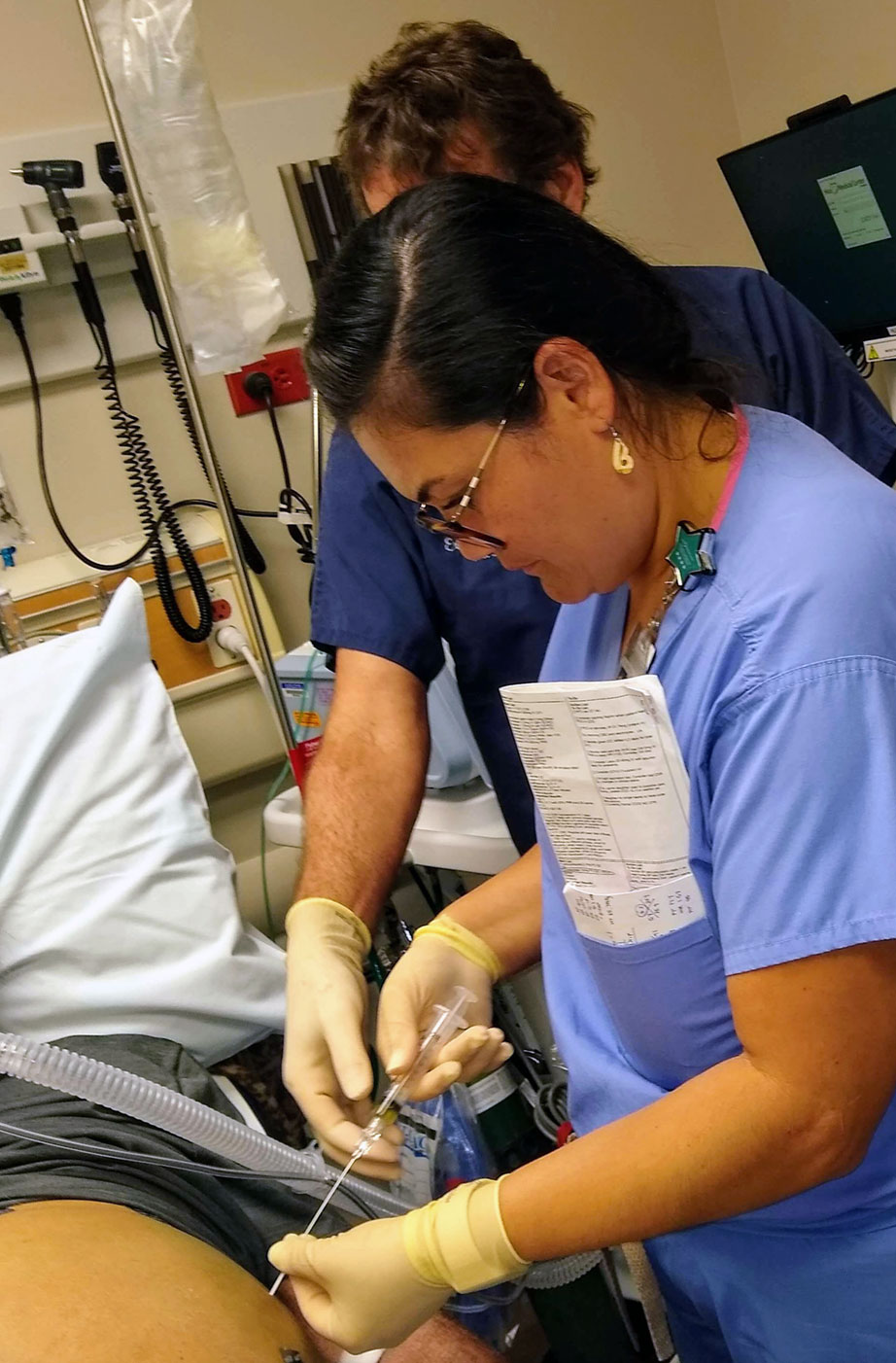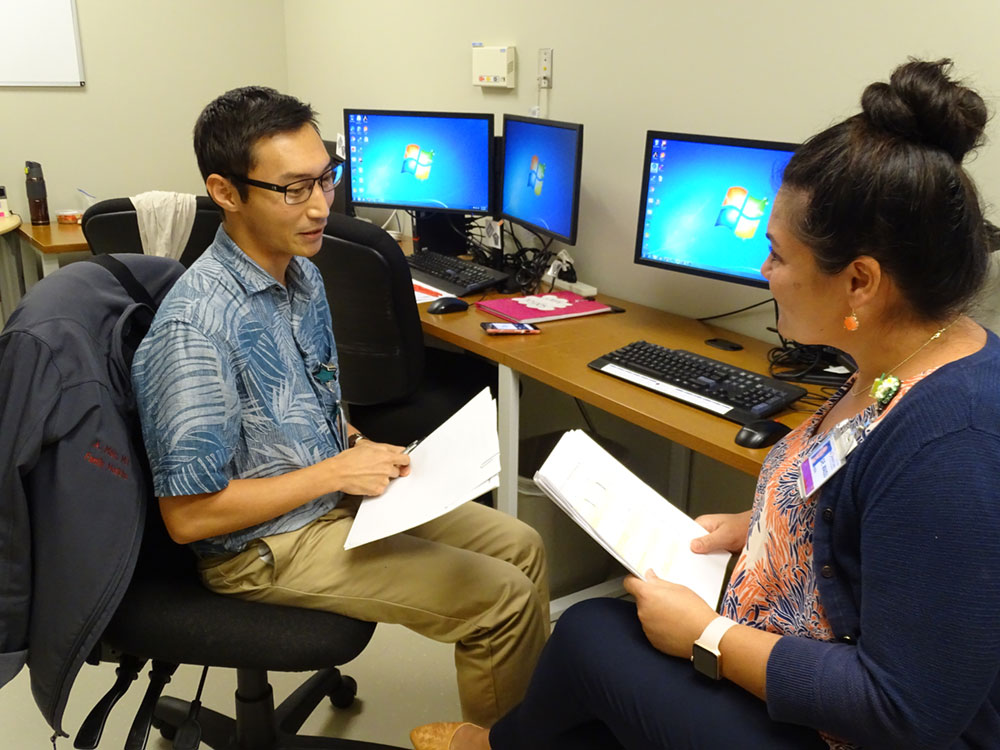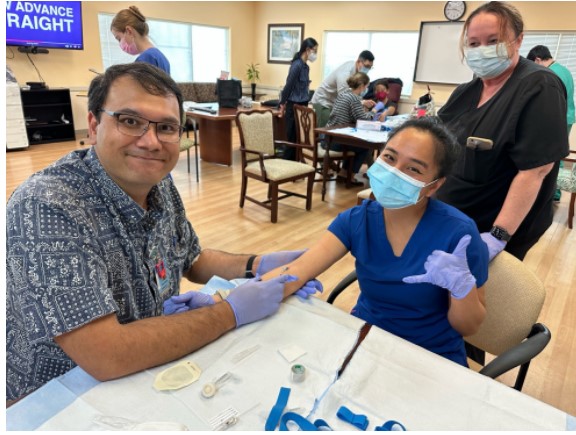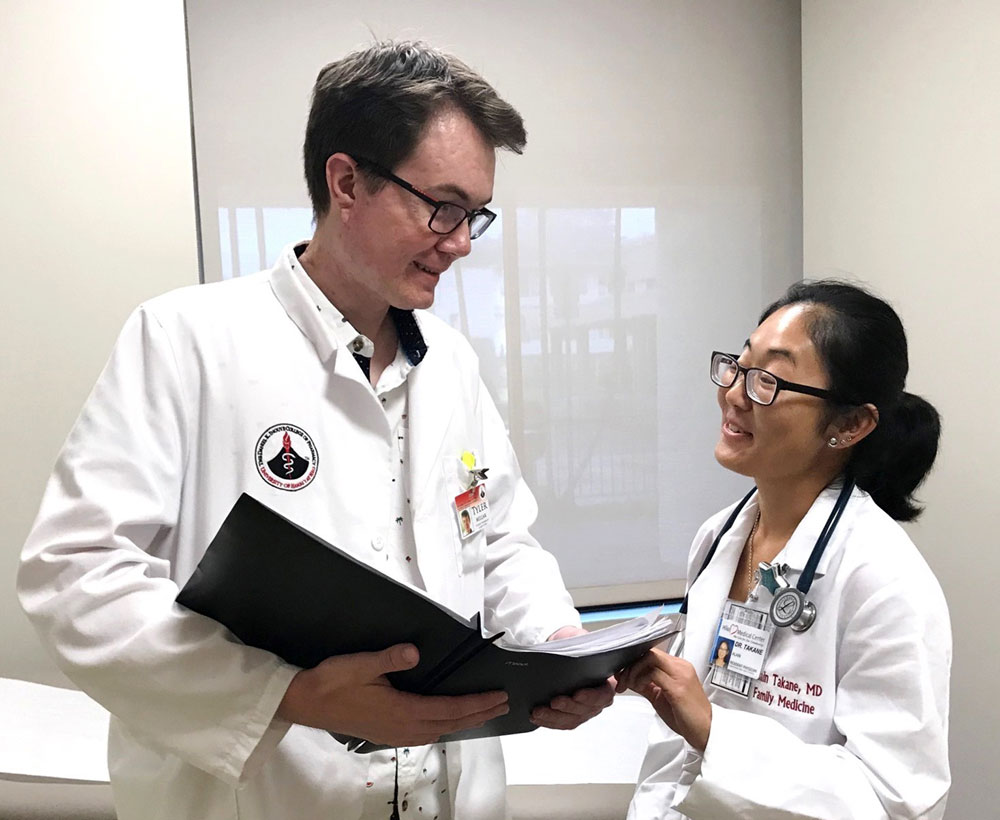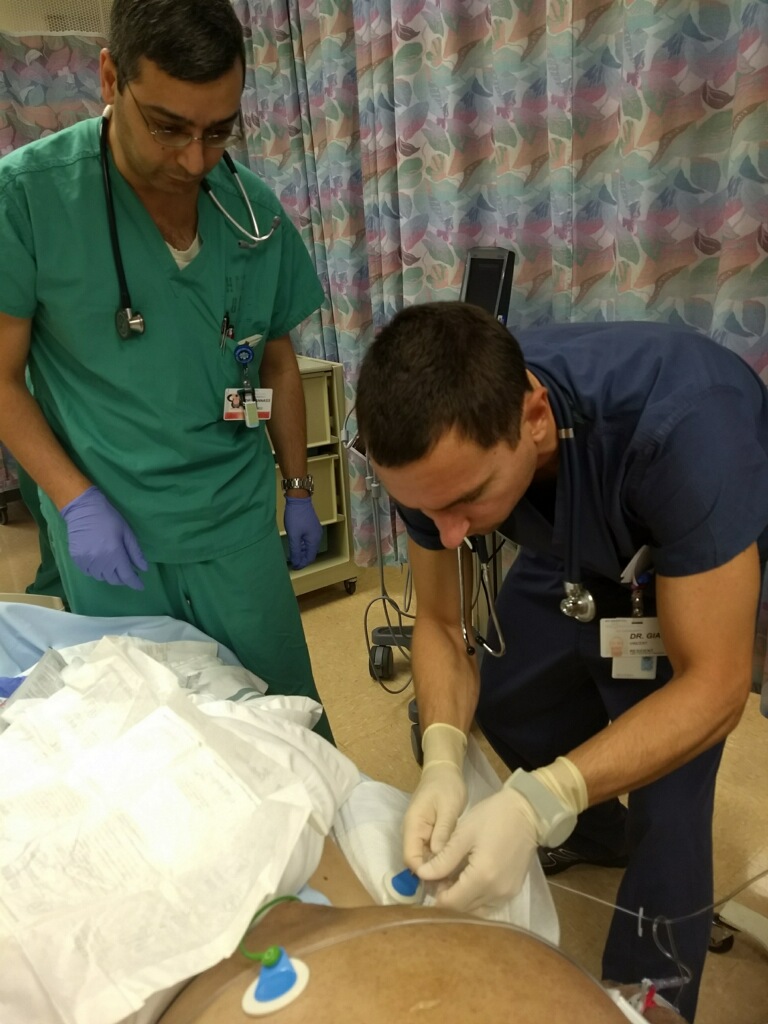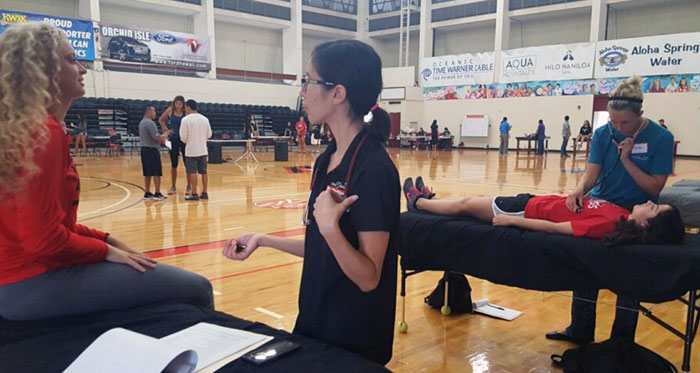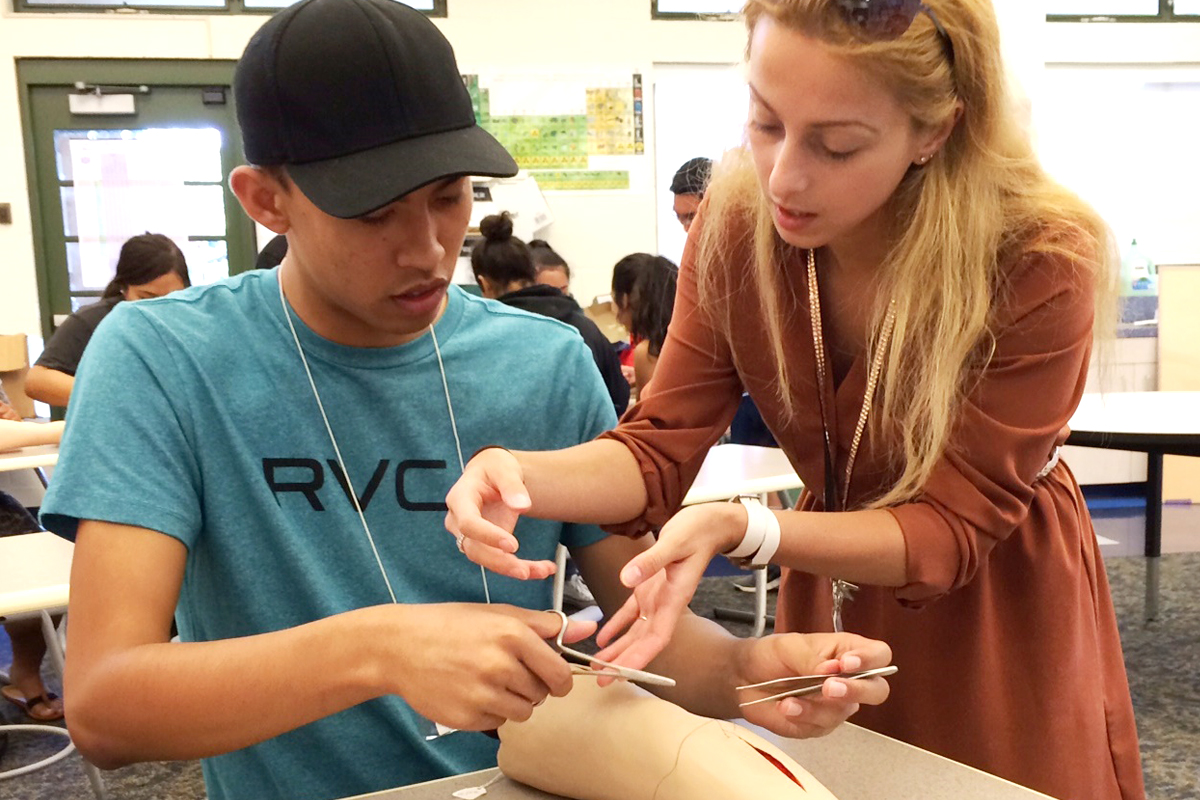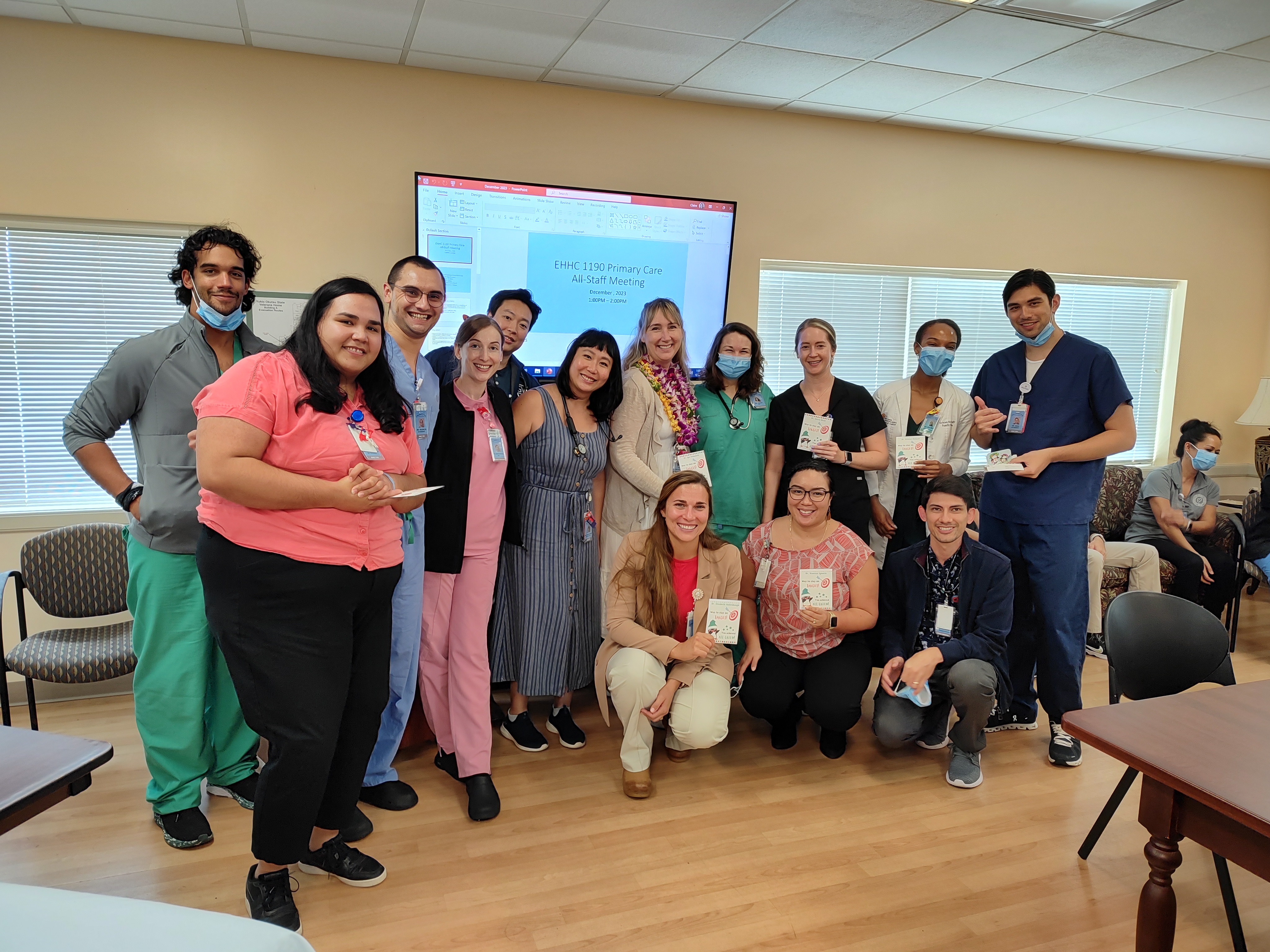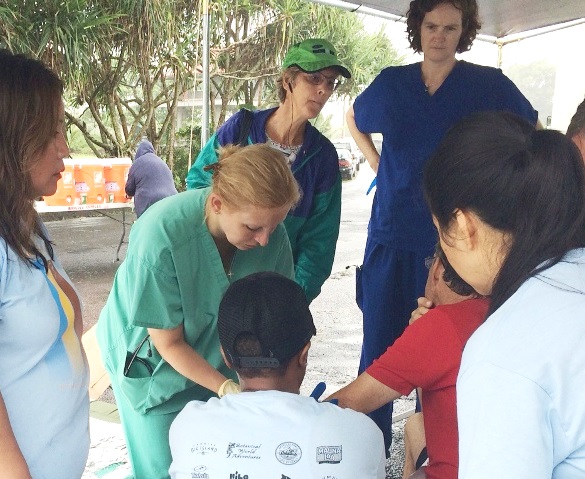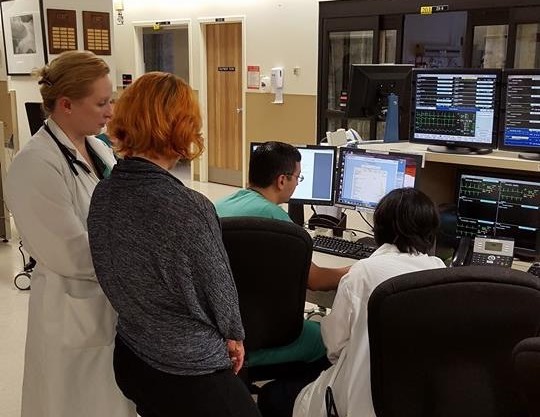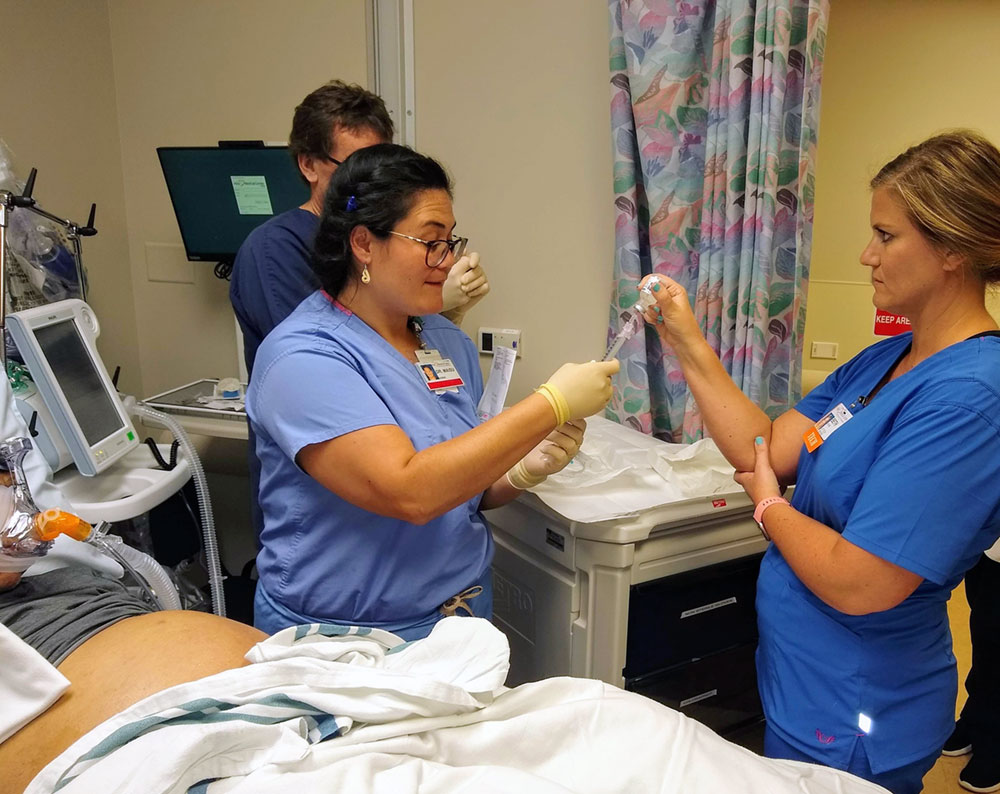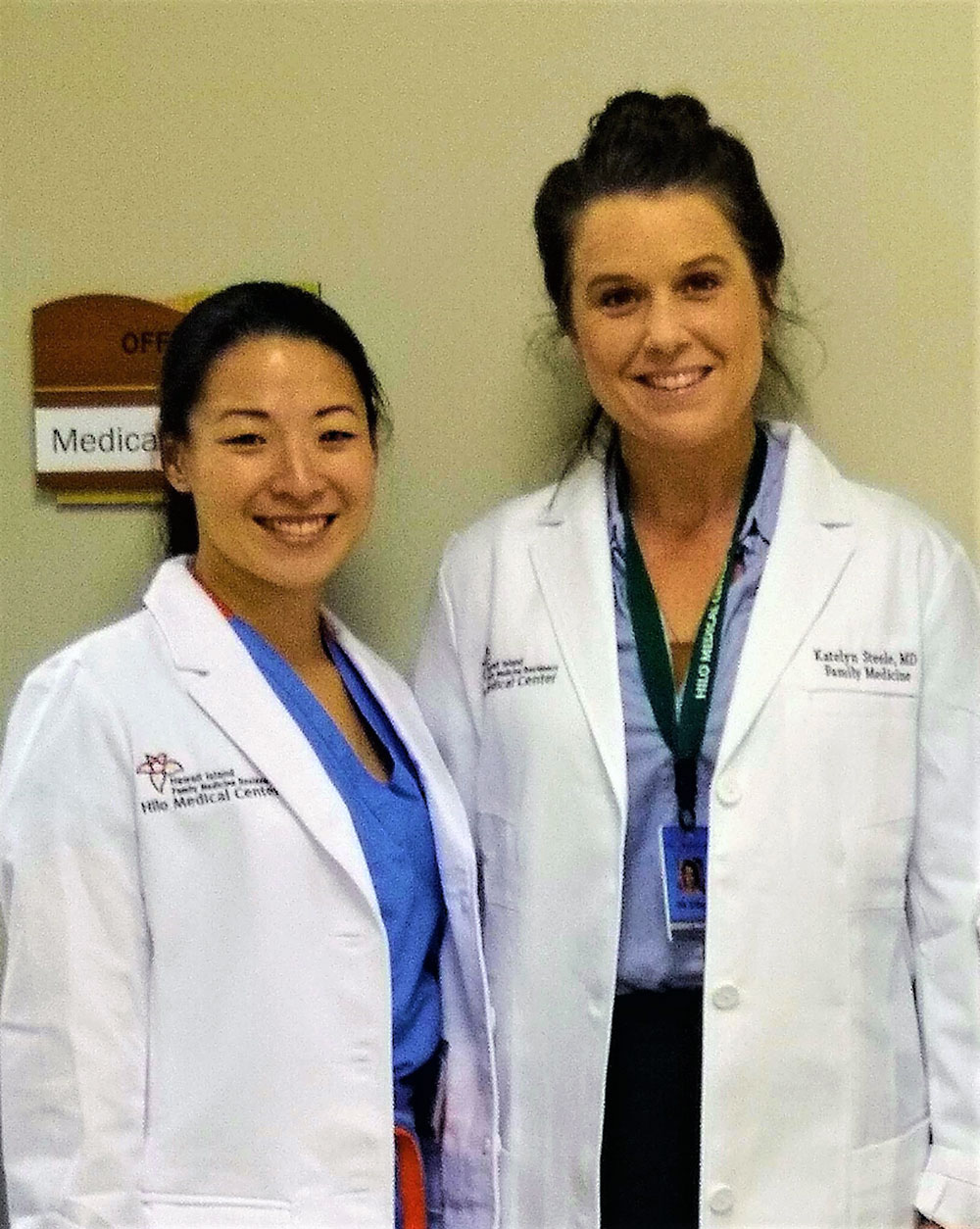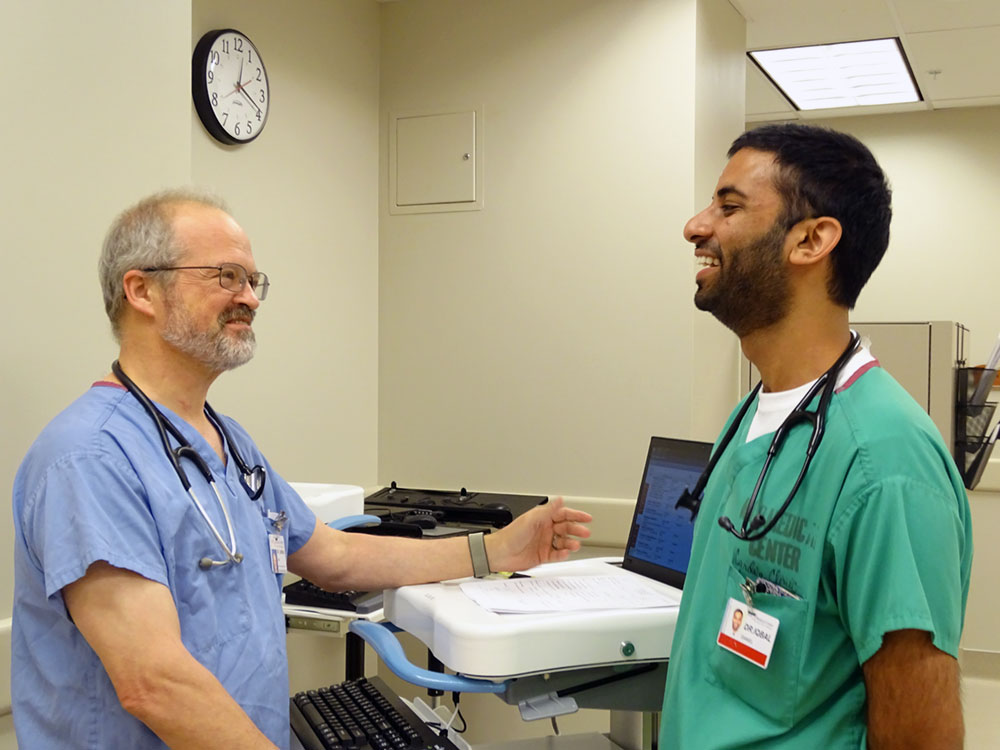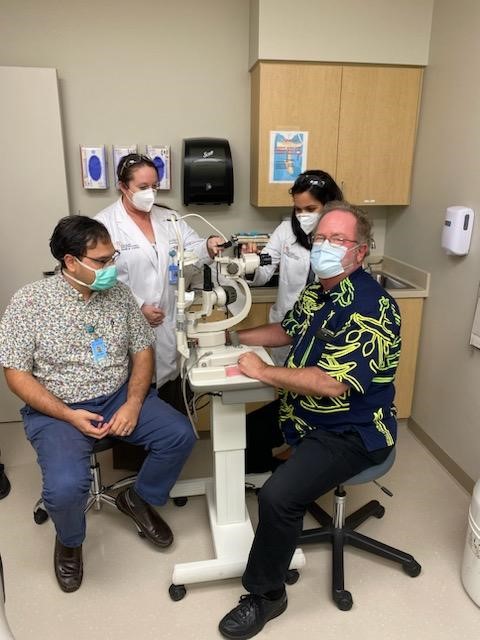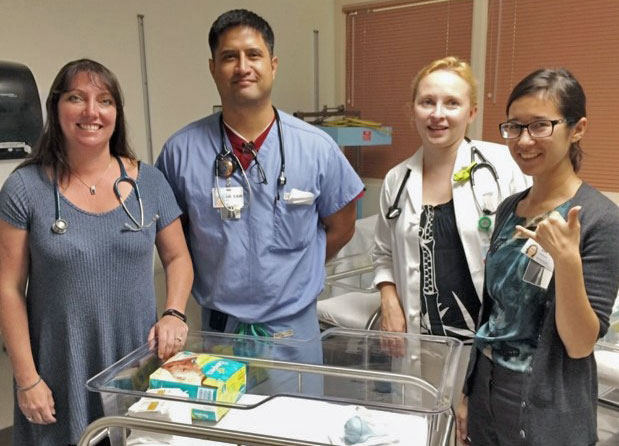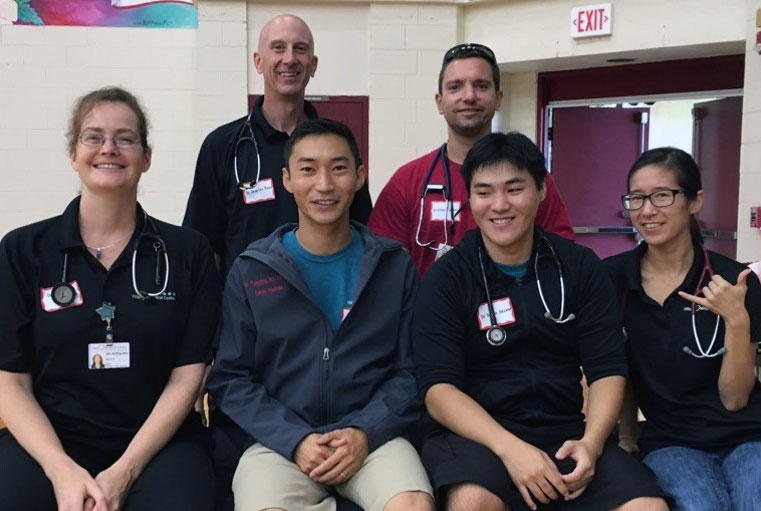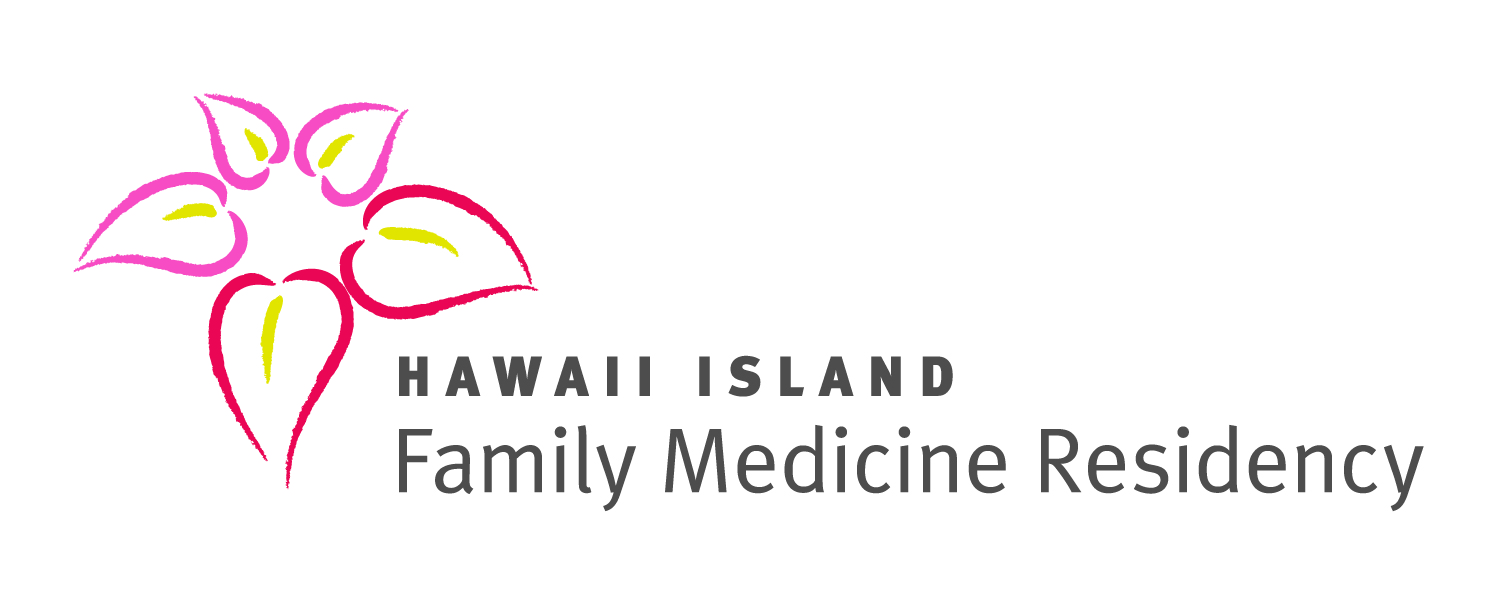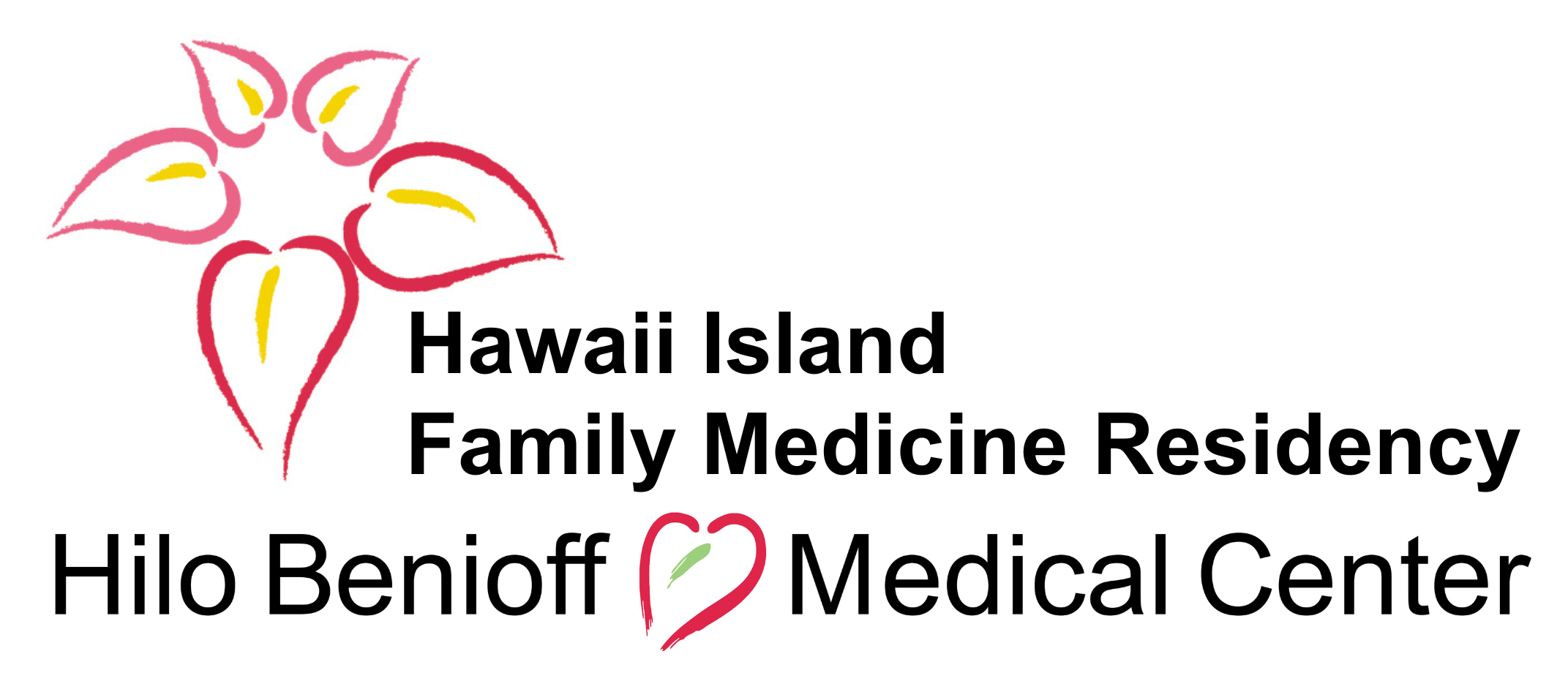Our residents take care of their own panel of patients at the East Hawai`i Health Clinic (EHHC), on the first floor of Hilo Benioff Medical Center. Residents are responsible for the care of patients from newborn to elderly, “keiki to kupuna”. We have a diverse patient population who has chosen EHHC as their medical home, and residents can expect to see a wide variety of clinical conditions and meet the minimum outpatient clinic visit requirements as outlined by the ACGME. In addition to practicing health and wellness, residents get ample sick visits, chronic disease management, and procedural experience to feel competent to practice independently as a family physician upon graduation.
As of July 2021, our program implemented the American College of Lifestyle Medicine Residency Curriculum. Lifestyle medicine involves the use of evidenced based lifestyle therapeutic approaches, such as predominantly a whole food, plant-based diet, regular physical activity, adequate sleep, stress management, avoidance of risky substance use, and pursuit of other non-drug modalities, to treat, reverse, and prevent chronic disease. Over the course of 3 years, in addition to the standard Family Medicine Residency curriculum, our residents learn and implement a skill set that utilizes these lifestyle modifications as an approach to prevent, treat and reverse chronic disease. At the end of residency, those who complete all the prerequisites are eligible to also sit for the American Board of Lifestyle Medicine certification exam.
To learn more about the ACLM Lifestyle Medicine Curriculum: Click Here
Please see the link below for all the Family Medicine Residency Sites that have also implemented this curriculum. Click Here
A designated week of Behavioral Health in the family medicine practice is taught by our behavioral psychologist and focuses on motivational interviewing and warm handoffs. Health Systems Management is longitudinal and includes a QI project as well as ongoing quality assurance measurements/analysis and learning about payment systems. In addition, residents learn about local private practice models from the East Hawai`i Independent Physicians Association. Residents interact with community resources alongside a Community Health Worker who is based at EHHC.
The Family Medicine Service (FMS) is the backbone of the inpatient hospital experience at Hilo Benioff Medical Center. The rotation features a resident team of an intern and two upper-level residents PGY-2 and PGY-3 who round on service with one of the residency faculty members. During this two-week block, the FMS team rounds on patients of our Hawai`i Island Family Health Center who are admitted for medical or surgical issues. These rounds include patients admitted to the ICU. Residents consult various specialists in our hospital as well as at facilities who may accept a patient in transfer to a higher level of care. Residents take overnight call in-house starting in their PGY-2 year. All residents receive BLS and ACLS certification.
PGY-1 and PGY-2 residents have an intense two-week block of Critical Care Medicine. They work in Hilo Benioff Medical Center’s Beacon Award-winning ICU (one of only 2 awardees in the state of Hawai`i) and learn critical care medicine from our intensivist. The 11-bed ICU is open so residents have additional experience managing ICU patients during their ongoing FMS inpatient rotations.
For Inpatient Pediatrics, residents spend at least 8 weeks working with pediatric hospitalists at Hilo Benioff Medical Center. These pediatricians care for routine admissions and stabilize and transfer sick children to tertiary centers when necessary. Residents are provided PALS and NRP certification. The residents spend at least 8 weeks with these same pediatricians in the Outpatient Pediatrics clinic in EHHC. All residents are assigned to rotate through the quarterly pediatric orthopedic Shriner’s clinic that is hosted by EHHC. Residents also have plenty of pediatric patients on their personal panel of continuity patients.
HIFMR residents are assigned to work with a group of Hilo-based OB/GYNs who are faculty at the University of Hawai`i at Manoa’s John A. Burns School of Medicine on Oahu. Residents gain invaluable women’s health experience with this group both in the clinic and the hospital during their 8 weeks of Obstetrics rotations. Residents are involved with all aspects of prenatal care and perform deliveries and participate in c-sections at Hilo Benioff Medical Center. They have the opportunity to attend the ALSO course. During their 4 weeks of Gynecology rotation, residents have ample opportunity to treat women of all ages and gain familiarity in various outpatient procedures such as Pap smears, KOH, and wet prep, endometrial biopsies, colposcopies, and LARC placement and removal.
Residents spend at least 8 weeks in the state’s second-busiest Emergency Department, at Hilo Benioff Medical Center. They see ample numbers of adult and pediatric patients. Residents participate in our hospital’s STEMI, trauma, and stroke activation teams. Residents also have the unique opportunity to learn with our an interventional cardiology service that began in early 2019.
During the Geriatrics experience, residents work with a geriatrician at the Life Care Center of Hilo. They learn about facility and care regulations and the variety of services available to skilled and unskilled patients in long term care facilities, including physical and occupational therapy. Residents spend time with attending physicians and support staff from Hawai`i Care Choices learning aspects of hospice and palliative care.
Residents spend eight weeks working with exceptional clinicians on their Orthopedics and Sports Medicine rotations. Orthopedic surgeons affiliated with Hilo Bone and Joint Clinic emphasize physical exam skills, joint injections, and when to refer to acute or chronic conditions.
PGY-1 residents have at least two weeks in General Surgery and have the opportunity to work alongside the general surgeons and learn the basics of pre- and post-operative care, including time in the operating room. Residents are scheduled for one-week rotations with Surgical Subspecialists in Urology, ENT, and Gastroenterology. Residents also participate in tele medicine visits with Endocrinology and Nephrology.
Residents are assigned four weeks of Cardiology over the course of their residency. During clinic with the cardiologist, special emphasis is placed on learning basic cardiac and peripheral vascular ultrasonography and stress testing. Residents participate in our new interventional cardiac catheterization lab. For the Neurology rotation in Hilo Benioff Medical Center’s Neurology clinic, the PGY-1 year gives the resident tools to evaluate and treat complex neurological conditions.
Each PGY-1 experiences an intensive week of Outpatient Psychiatry at an East Hawaii Health Rural Health Clinic, with a focus on the assessment of psychiatric emergencies and use of pharmacologic management for stabilization.
Residents are encouraged to do electives that augment their future skills to hopefully one day practice in Hawai`i. Current residents have arranged additional training in HIV medicine, family planning, and urgent care, to name a few examples. Housing and travel funds may be available for rotations that are too far away to drive to on a daily basis or on a neighbor island.
